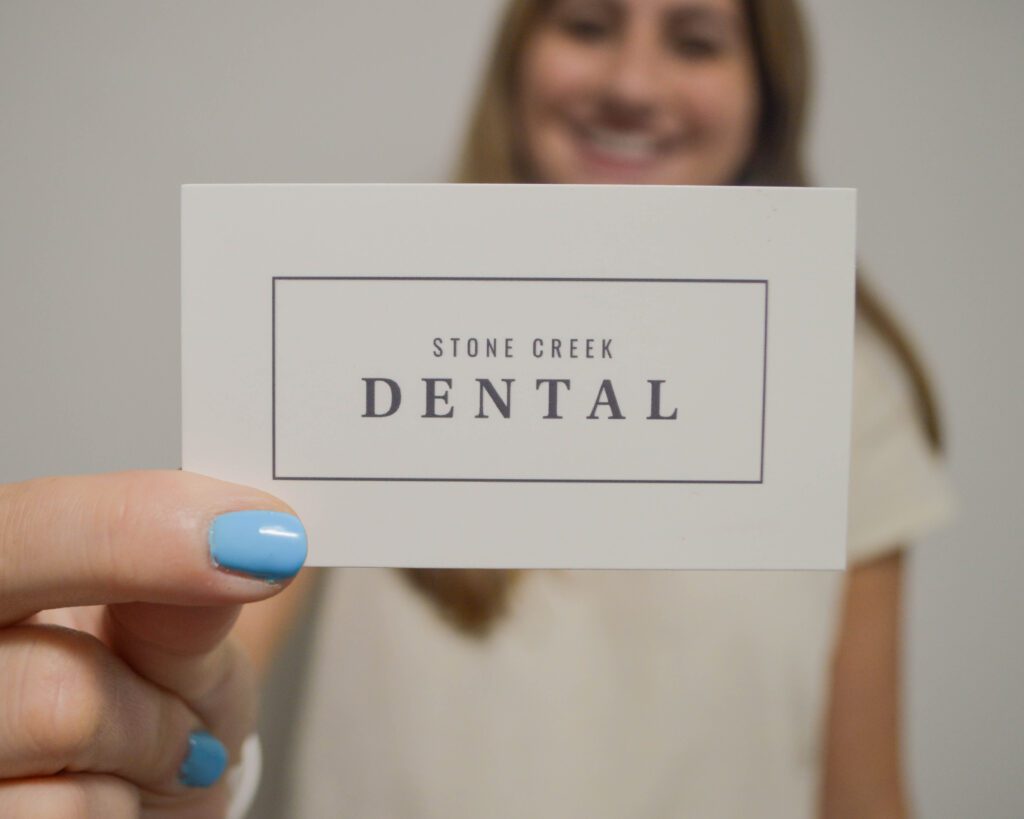Below are some of the most frequently asked questions patients have about dentistry and oral health issues. If you have any other questions or would like to schedule an appointment, we would love to hear from you. To get more information on patient services and more, please visit For Patients.

What should I do about bad breath?
Bad breath (halitosis) can be an unpleasant and embarrassing condition. Many of us may not realize that we have bad breath, but everyone has it from time to time, especially in the morning.
There are various reasons one may have bad breath, but in healthy people, the major reason is due to microbial deposits on the tongue, especially the back of the tongue. Some studies have shown that simply brushing the tongue reduces bad breath by as much as 70 percent.
How often should I brush or floss?
Plaque is a film of food debris, bacteria, and saliva that sticks to the teeth and gums. The bacteria in plaque convert certain food particles into acids that cause tooth decay. Also, if plaque is not removed, it turns into calculus (tartar). If plaque and calculus are not removed, they begin to destroy the gums and bone, causing periodontal (gum) disease.
Plaque formation and growth are continuous and can only be controlled by regular brushing, flossing, and the use of other dental aids.
Are amalgam (silver) fillings safe?
Over the years, there has been some concern as to the safety of amalgam (silver) fillings. An amalgam is a blend of copper, silver, tin, and zinc bound by elemental mercury. Dentists have used this blended metal to fill teeth for more than 100 years. The controversy is due to claims that exposure to the vapor and minute particles from mercury can cause a variety of health problems.
According to the American Dental Association (ADA), up to 76% of dentists use silver-containing mercury to fill teeth. The ADA also states that silver fillings are safe and that studies have failed to find any link between silver-containing mercury and any medical disorder.
How often should I have a dental exam and cleaning?
You should have your teeth checked and cleaned at least twice a year, though your dentist or dental hygienist may recommend more frequent visits.
Regular dental exams and cleaning visits are essential in preventing dental problems and maintaining the health of your teeth and gums. At these visits, your teeth are cleaned and checked for cavities. Additionally, many other things are checked and monitored to help detect, prevent, and maintain dental health.
How can I tell if I have gingivitis or periodontitis (gum disease)?
Four out of five people have periodontal disease and don’t know it! Most people are not aware of it because the disease is usually painless in the early stages. Unlike tooth decay, which often causes discomfort, it is possible to have periodontal disease without noticeable symptoms. Regular dental check-ups and periodontal examinations are very important and help detect if periodontal problems exist.
Why is it important to floss?
Brushing our teeth removes food particles, plaque, and bacteria from all tooth surfaces except in between the teeth. Unfortunately, our toothbrush can’t reach these areas that are highly susceptible to decay and periodontal (gum) disease.
Daily flossing is the best way to clean between the teeth and under the gumline. Flossing not only helps clean these spaces, it disrupts plaque colonies from building up, preventing damage to the gums, teeth, and bone.
